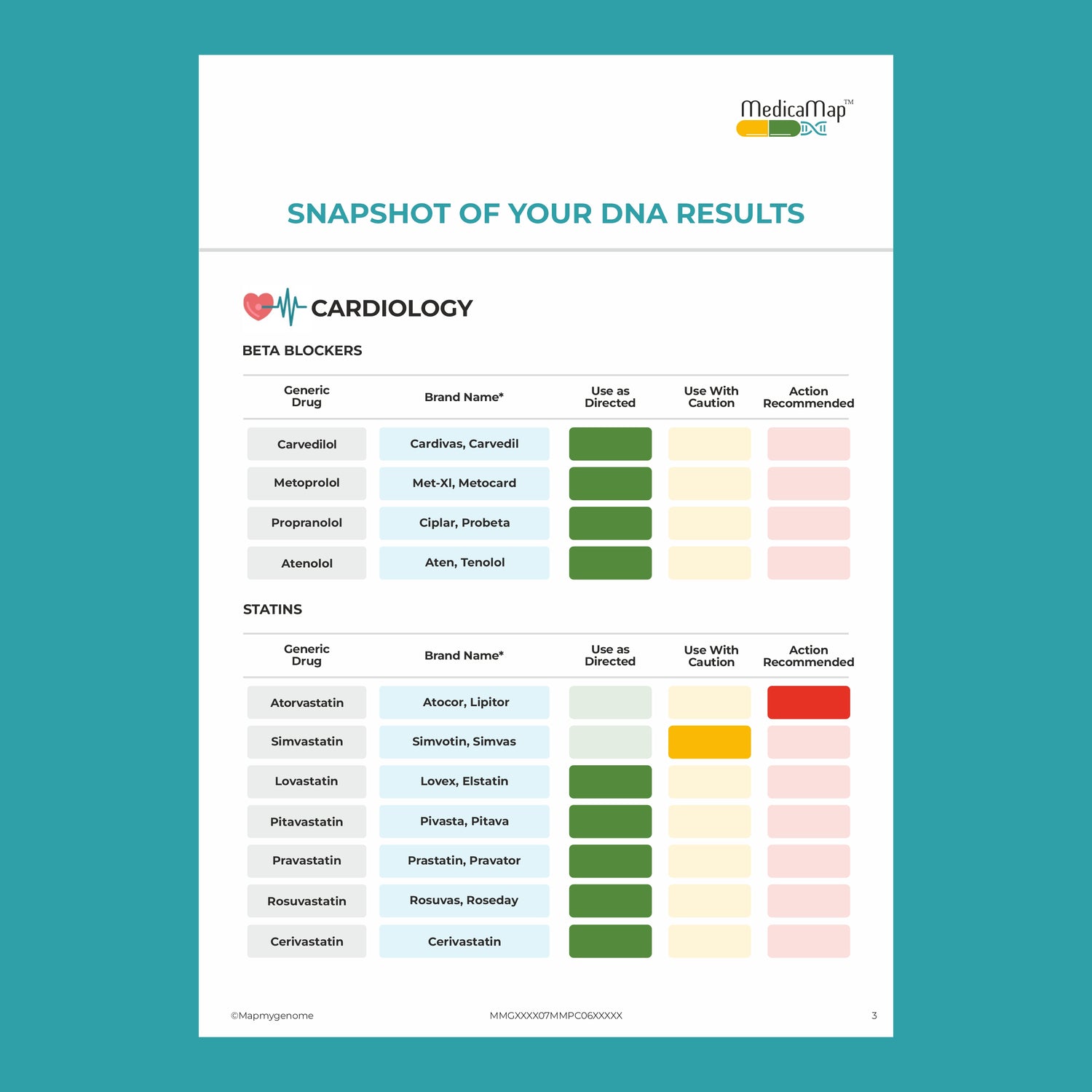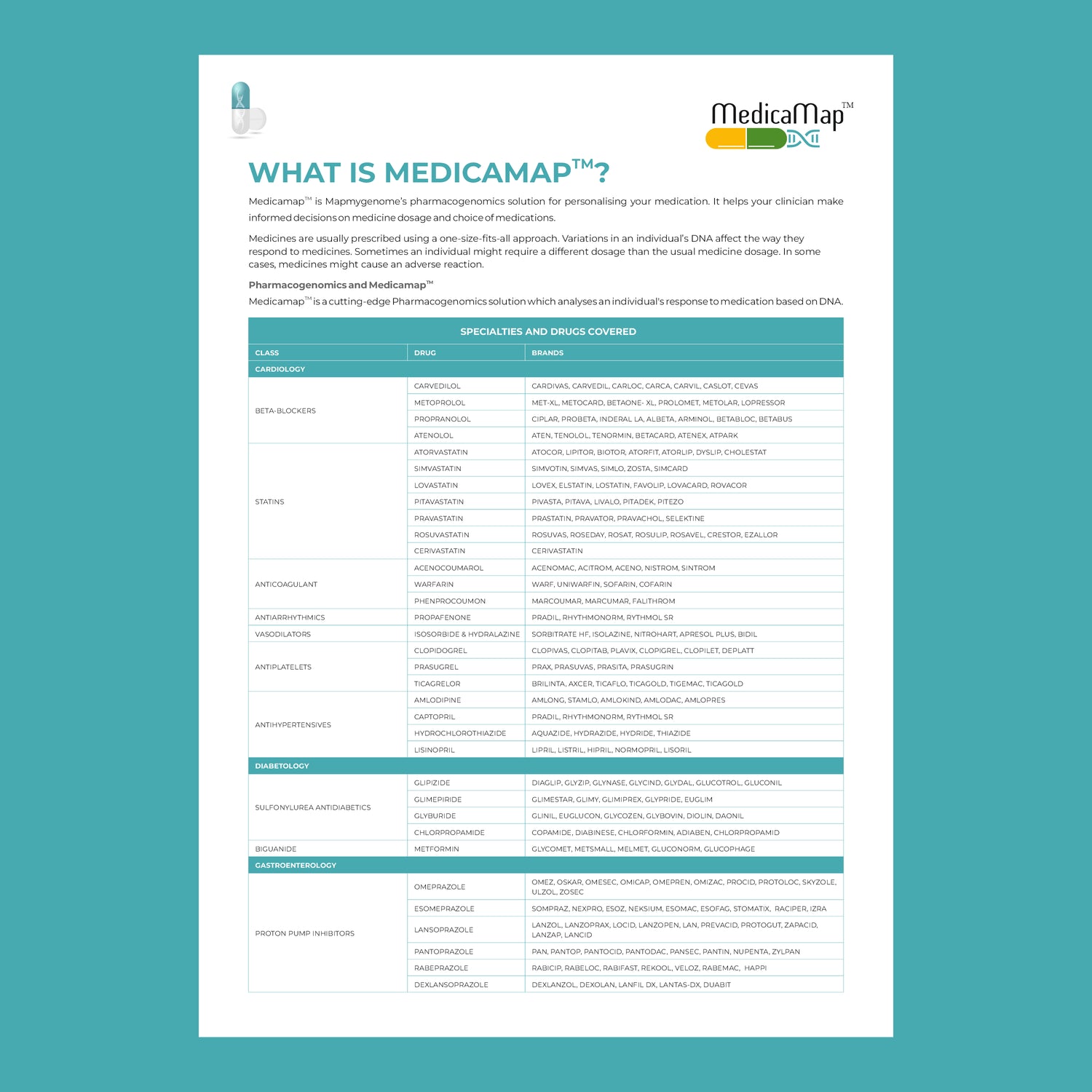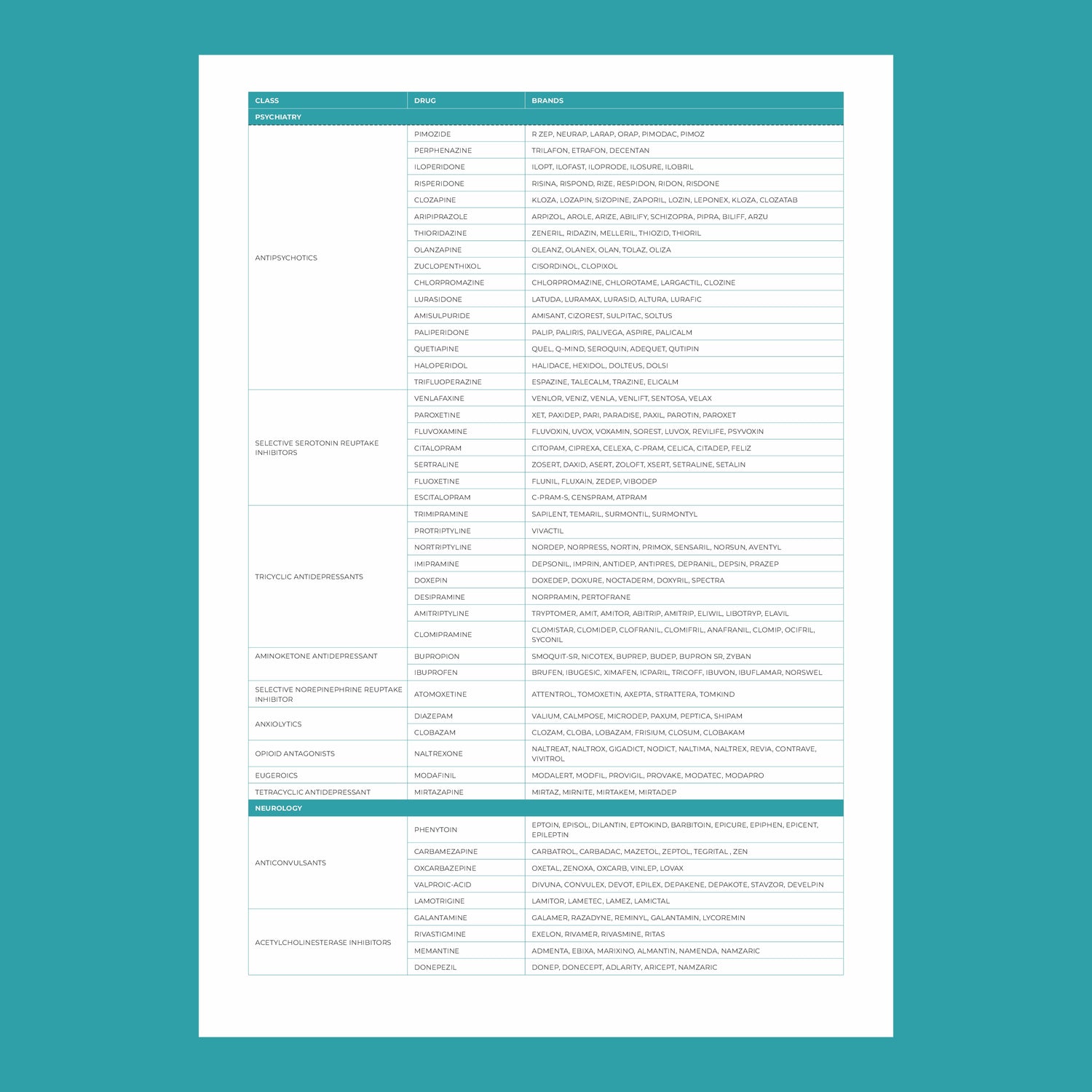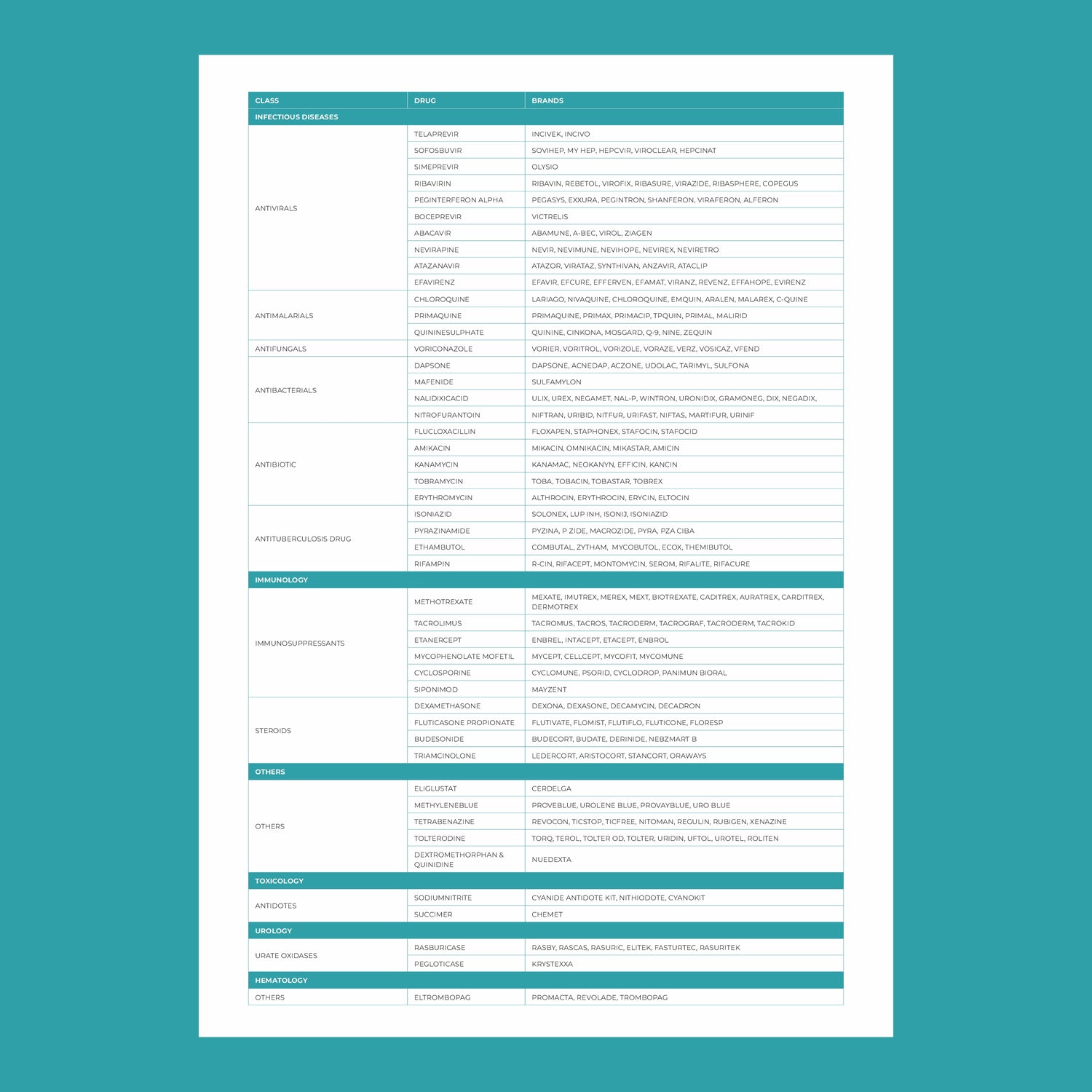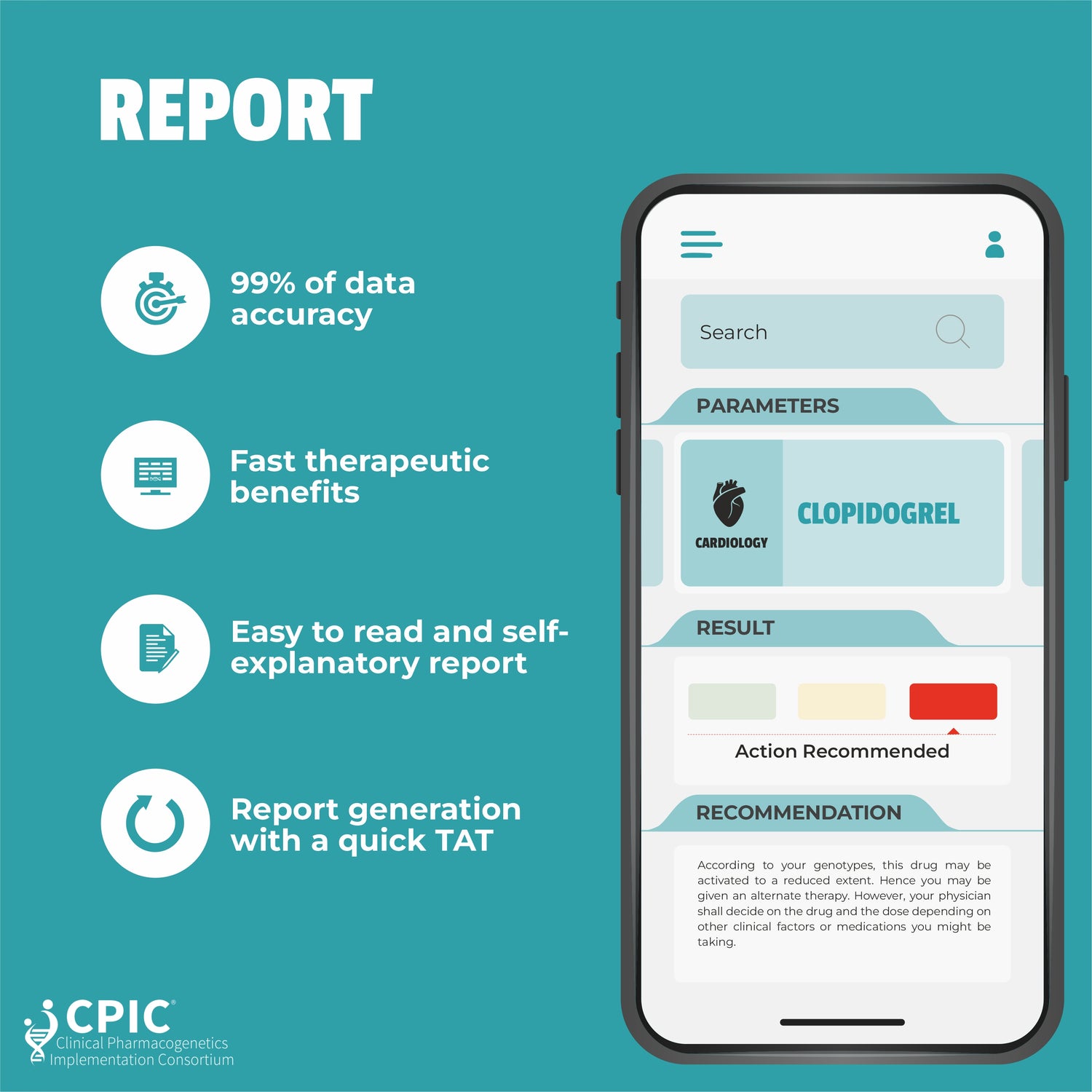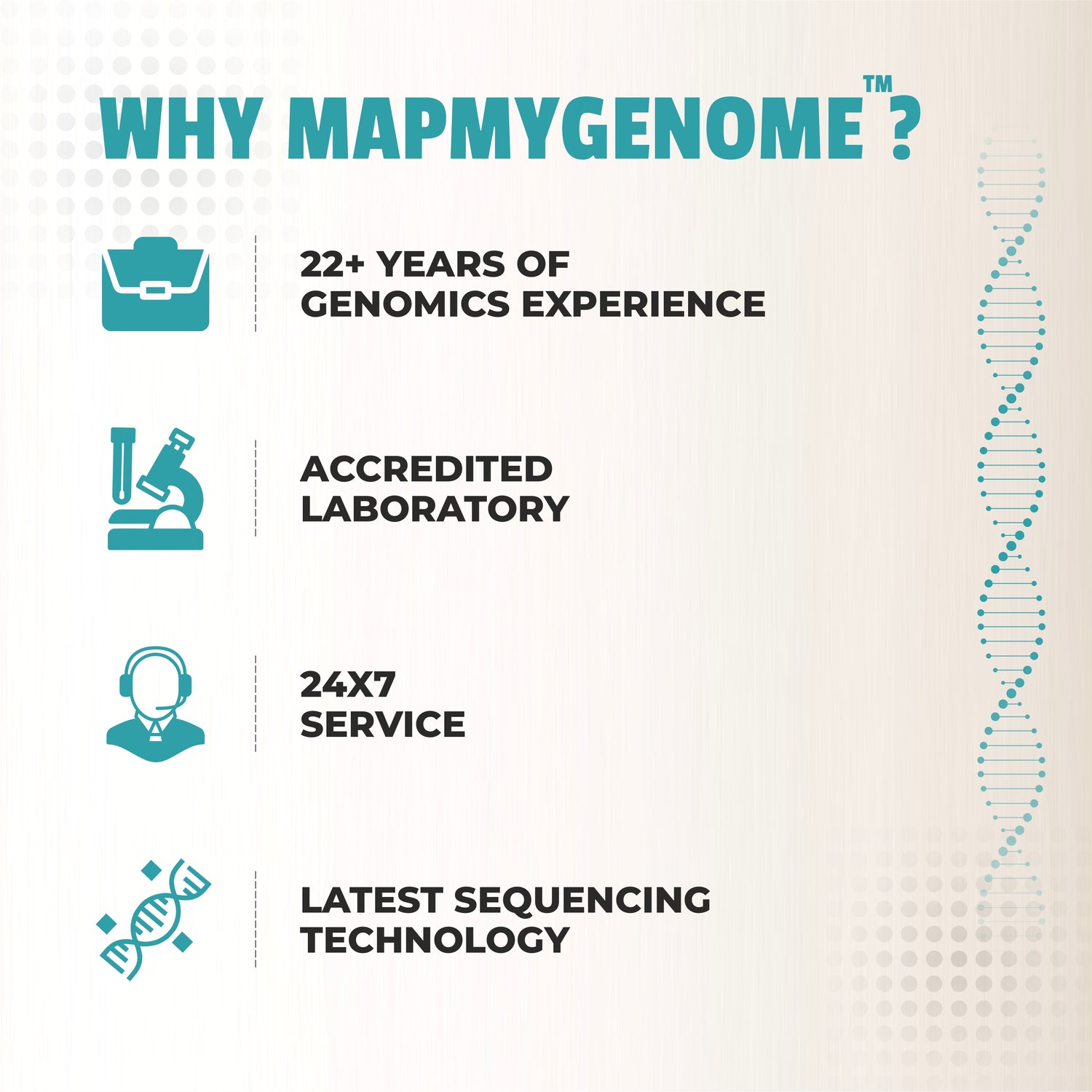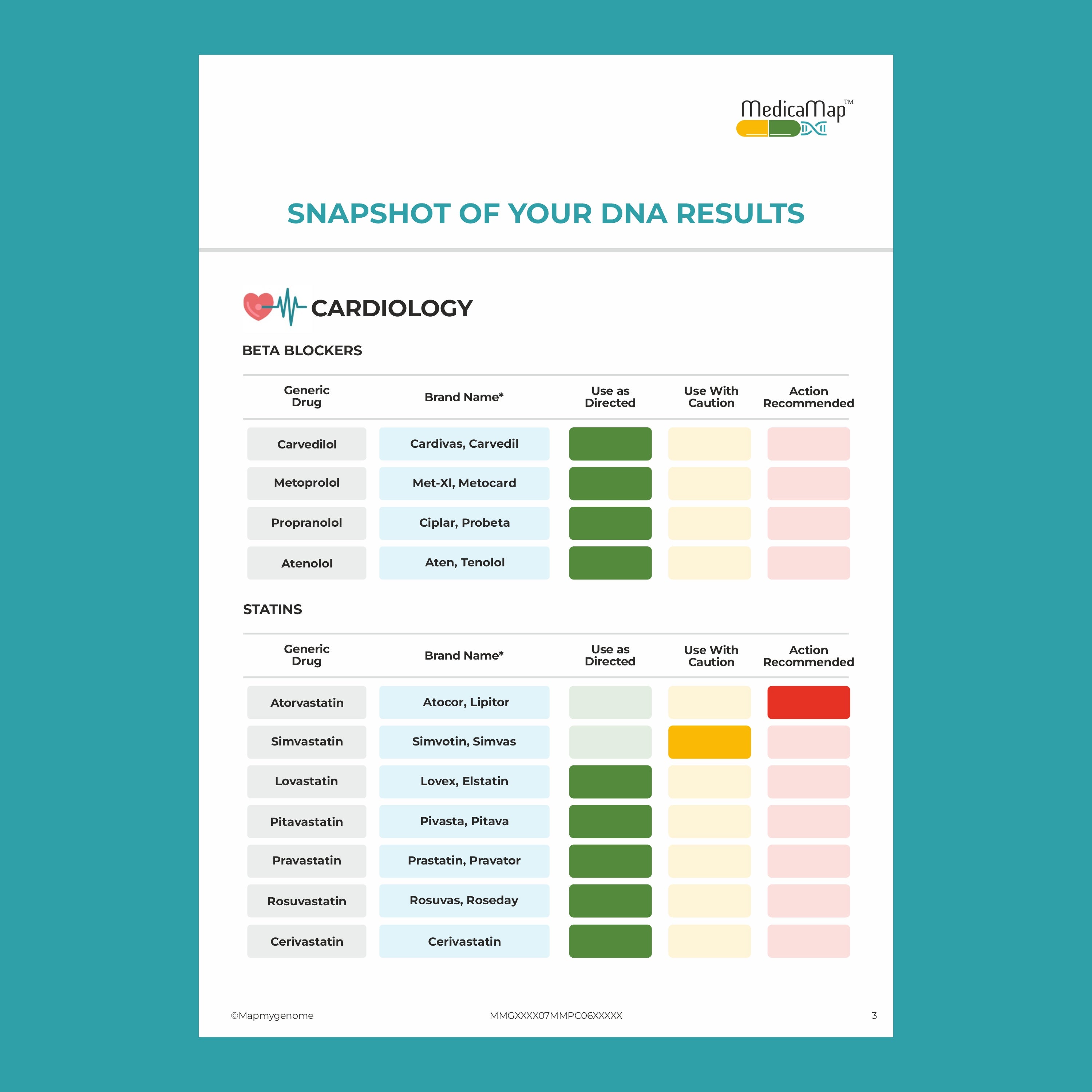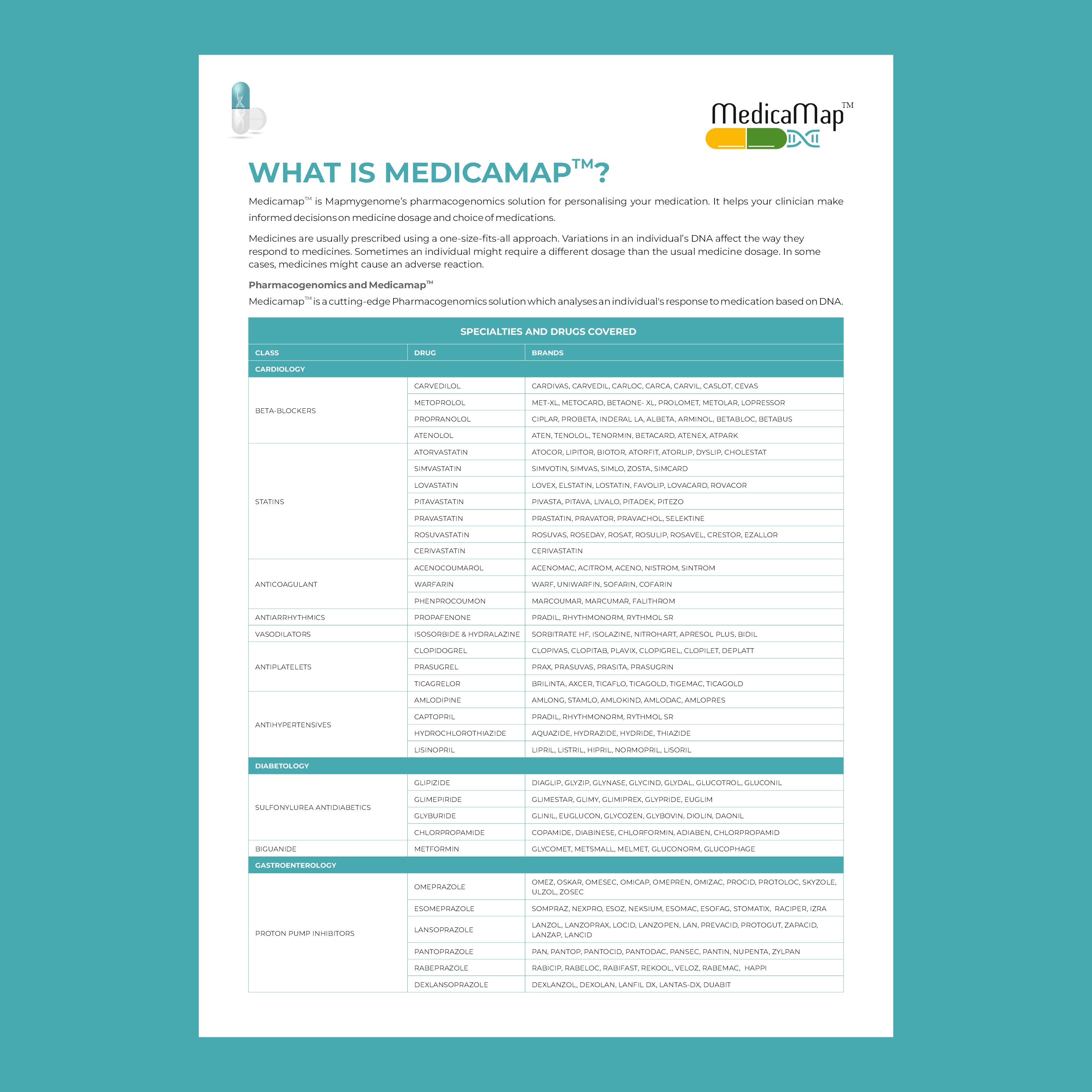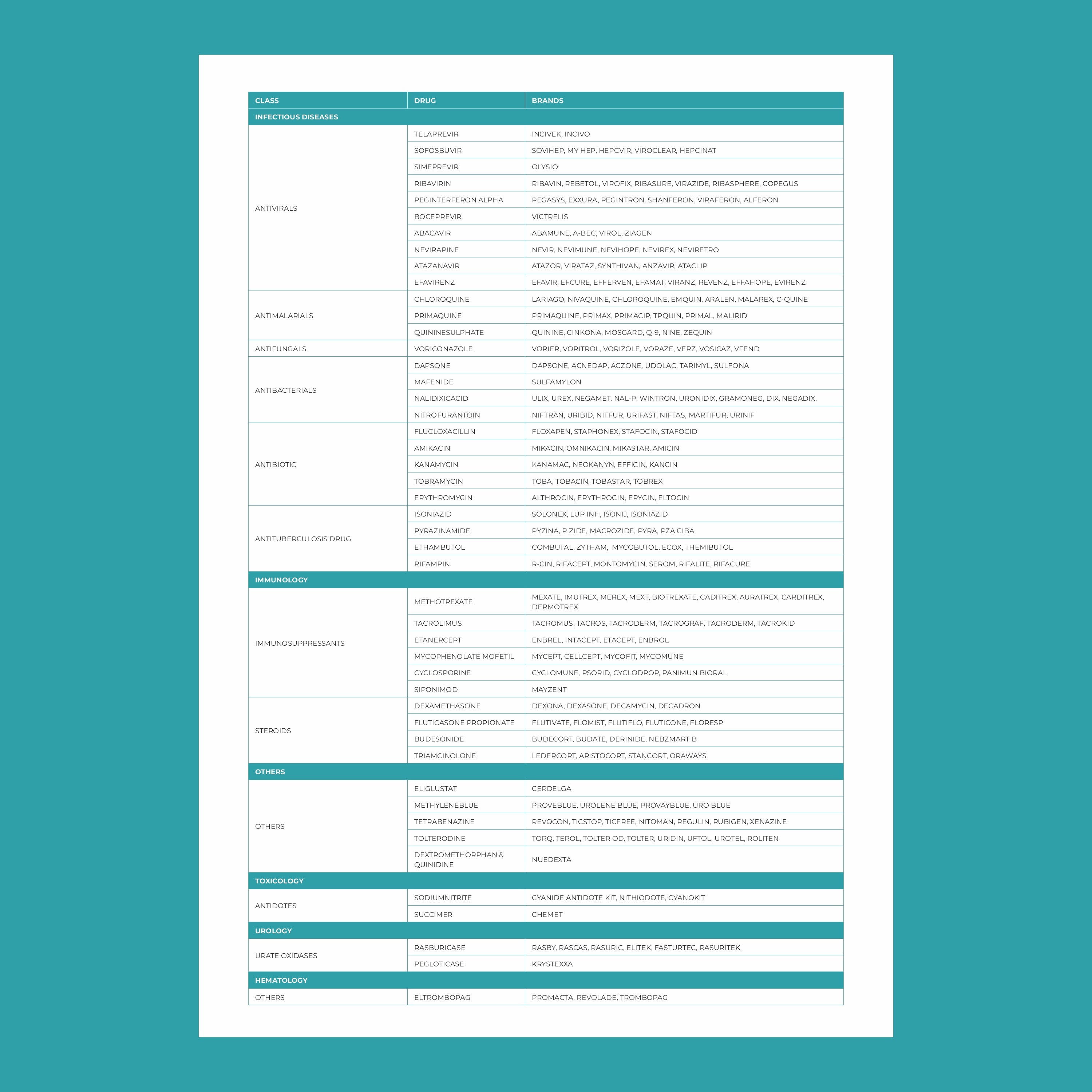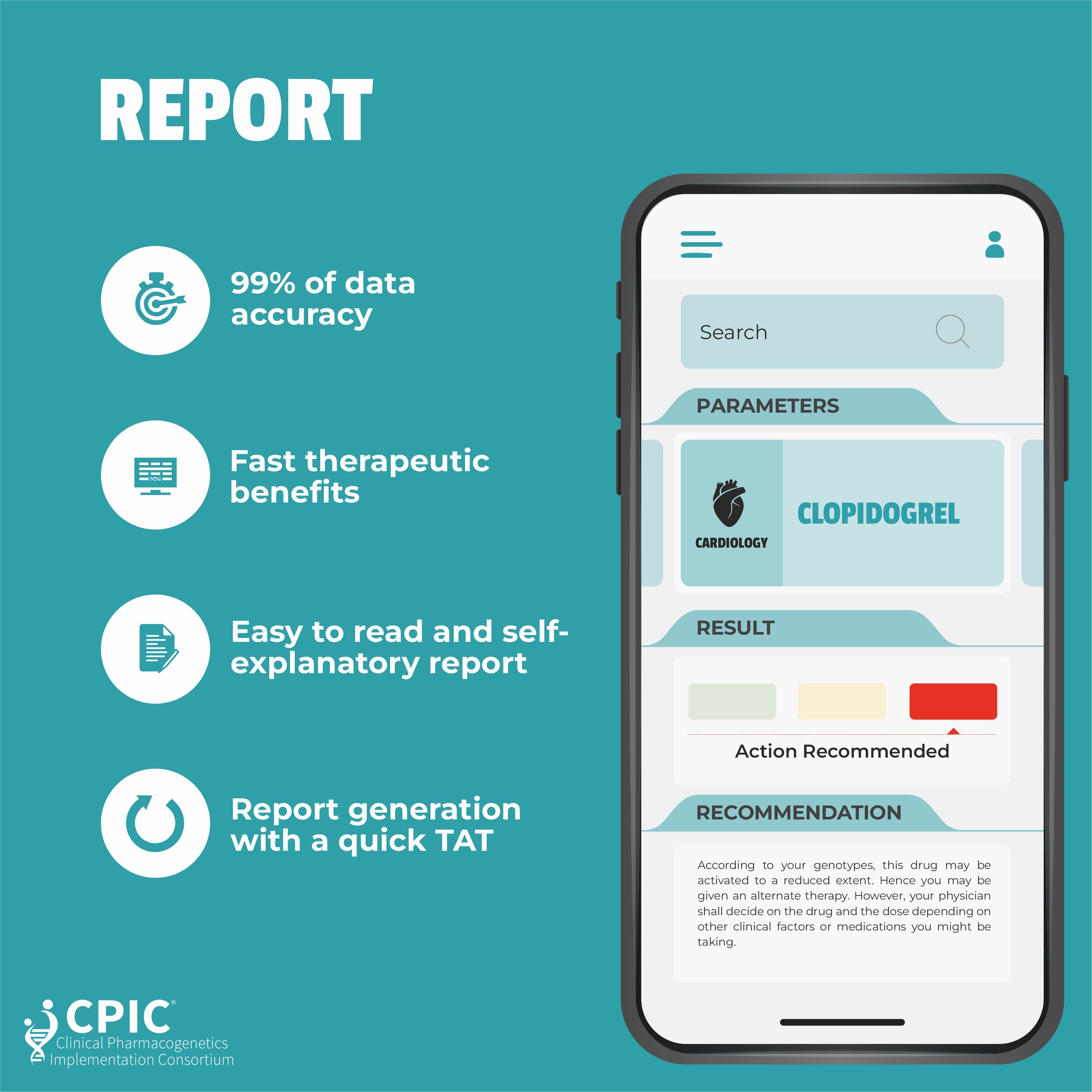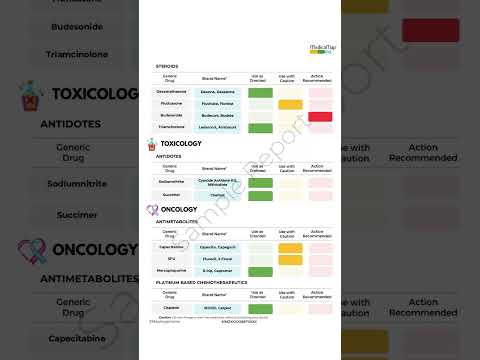Pharmacogenomics
Modern science has made it possible to predict the efficacy of a drug before starting the treatment process. “Pharmacogenomics” is the study of how genes affect an individual’s response to drugs. This relatively new field combines pharmacology (the science of drugs) and genomics (the study of genes and their functions) to develop effective and safe medications and dosages that will be tailored to an individual person’s genetic makeup (1). One of the best examples of pharmacogenomics saving lives and treatment time is that of Clopidogrel, known by the brand name Plavix.
What does Clopidogrel drug do?
Clopidogrel is a common and widely used drug across the globe, majorly prescribed for patients with cardiovascular diseases. Clopidogrel drug works as a blood thinner by preventing platelets from forming clumps, thereby reducing chances of clot formation. It aids in blood flow and reduces the risk for developing a future stroke or heart attack.
How does Clopidogrel work?
Clopidogrel is a pro-drug, which is in an inactive state and needs to be converted to the active metabolite form. For this drug to function in the body, enzymes in liver (predominantly CYP2C19) must convert (metabolize) the drug to its active form.
Clopidogrel works by preventing a natural substance called adenosine diphosphate (ADP) from binding to its receptors on platelets. ADP is one of the chemicals in the body that cause platelets to clump together and start the process of blood clotting. As Clopidogrel stops ADP from binding to platelets, it reduces the likelihood of clots forming in the blood(2).
Under what circumstances do physicians prescribe Clopidogrel?
Clopidogrel is an anti-blood clotting drug majorly prescribed to prevent the risk of heart attack or unstable angina. Patients with recent history of stroke or those who have had stents placed for Coronary Artery Disease also use this drug.
Why do doctors recommend genetic tests for Clopidogrel response?
Patients who cannot metabolize the drug efficiently are called Poor Metabolizers and this effect of metabolism depends on certain variants in genes such as CYP2C19, CYP1A2, and CYP2B6. If a person with these genetic variants takes this medication, this drug might not work and precious treatment time is wasted. Genetic tests can identify these genetic variants that modify the metabolizing effect in the body.
What are the advantages of this test?
By doing this test, you can find out whether this drug is effective on your body types and has any effect on them. Poor metabolizers have adverse outcomes and may not see a reduction in symptoms.
Researchers have estimated that 30-35 %(3) of Indians and Caucasians are poor or intermediate metabolizers of clopidogrel. The US FDA has given a black box warning to this drug, stating that people who are CYP2C19 poor or intermediate metabolizers have diminished effect of this drug leading to higher cardiovascular event rates following percutaneous coronary intervention or acute coronary syndrome, compared against patients with normal CYP2C19 function(4).
Fortunately, alternative therapies like Prasugrel and Ticagrelor are prescribed for poor metabolizers if there is no contraindication. These drugs may work better during treatment.
Some people may be intermediate metabolizers. For such people, physicians may increase the drug dosage based on their genetic reports.
How can MapmyGenome help you?
MedicaMap, MapmyGenome’s pharmacogenomics solution for personalizing your medication. It helps your clinician make informed decisions on medicine dosage and choice of medications.
MedicaMap provides information about your body’s response to 165+ medicines across 12 specialities, this also includes Clopidogrel.




